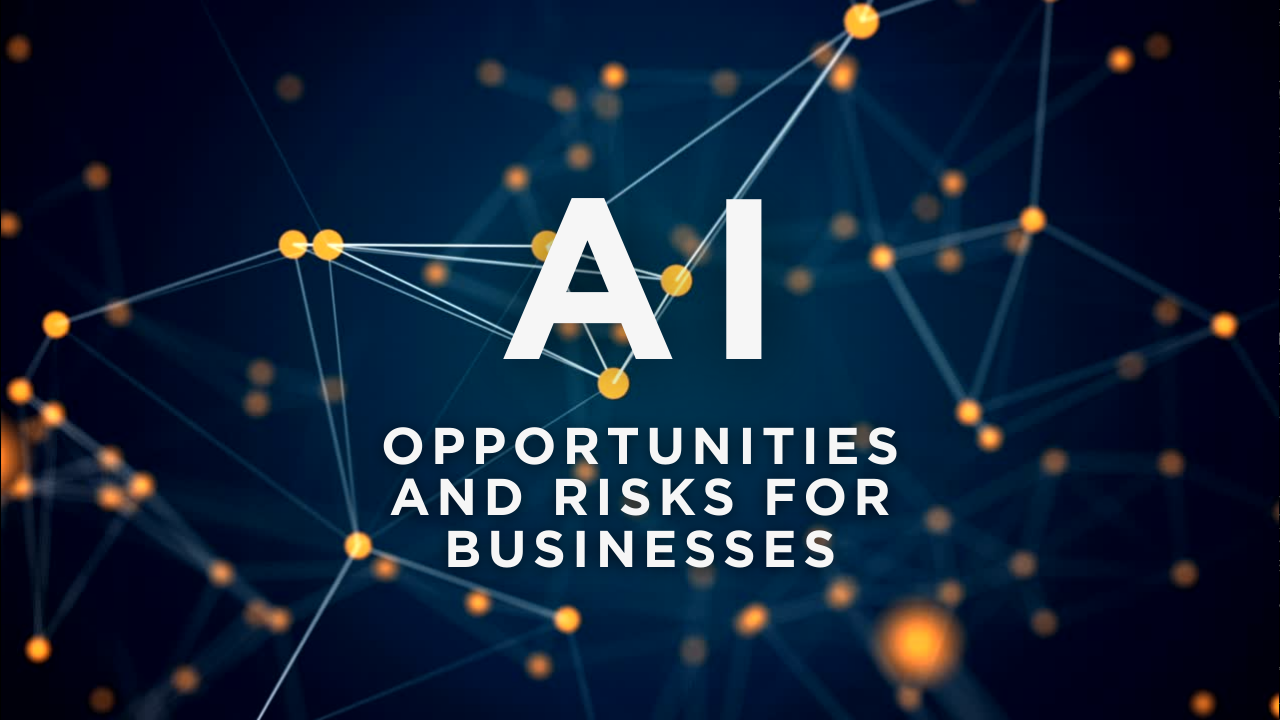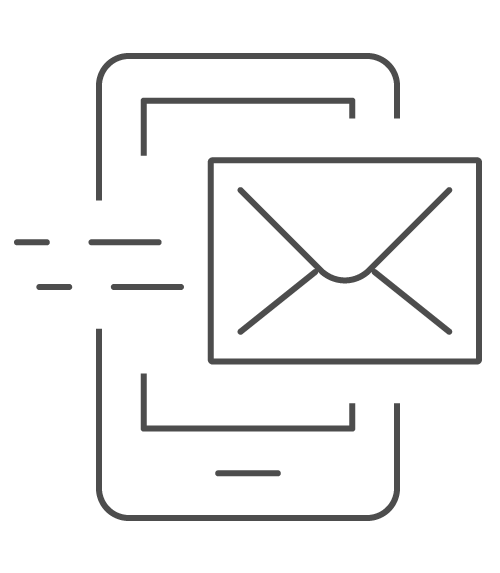
Artificial intelligence (AI) has become a household name thanks to generative AI systems like Open AI’s ChatGPT and Dall-E.
Generative AI is a processing tool built on deep machine learning that can digest colossal amounts of data. It can synthesize, translate, analyze, and summarize dense information in a human tone. Its responses and interactions may seem human, but it’s programmed that way.
It’s changing the way we use think tanks and spontaneous ideas that come up on workplace apps for getting work done. For instance, you could use ChatGPT to analyze messages from your engineering team’s chat platform and make brief creative brainstorming reports. Afterward, you could easily share these reports with your management team.
But, for all of AI’s benefits, there are also drawbacks. As the dust settles from the AI media storm, practical questions remain: how can AI help your organization, what are the risks, and how can you mitigate them?
Maximizing AI Success
As with any new technology, you might face challenges involving data management, initial setup, and staff training. Start by assessing how AI could benefit your business. If you have the budget to onboard it, customize it and train your employees to use it. An unbiased consultant could help you decide whether AI suits your business operations. Employers considering AI should have multiple perspectives:
- Harmful outcomes involving AI, like algorithmic bias, hiring discrimination and patient care
- Helpful effects of applying AI, like improved crop yields in farming and predictive storm path modelling
- Human concerns like customer experience, consumer choice and privacy
Although AI can initially demand a lot of resources, it can bring lasting benefits when used wisely. Proper implementation involves careful planning, including cybersecurity, protecting intellectual property, and ensuring data privacy. Additionally, AI may affect job roles. Plan to navigate these changes, including adopting policies around AI and being transparent with how you intend to use AI in your operations.
AI Risk Exposures and Ways to Insure Them
Since AI is rapidly evolving, insurance for businesses using generative AI is relatively new and complex.
As of writing, there is no specific insurance for AI liability…yet. Keep in mind that the liability risks will evolve as AI evolves. At Wedgwood, we do annual coverage reviews to ensure our clients have no coverage gaps. Let us know if you’ve changed how you perform your operations, especially by integrating AI. You can insure against your risks using layers of insurance. You might already have some of these in place:
Cyber liability or data breach insurance covers legal fees and expenses associated with cybercrime. For example, cyber liability will help pay for network restoration and required personal identity monitoring if a cyberattack exposes personal data. Any business that uses an internet-connected computer or device needs this insurance.
Technology errors and omissions (E&O) insurance covers software developers and technology consultants for negligence, mistakes, or failures to perform their professional duties. This coverage is for you if you recommend AI products or work in technology.
Intellectual property insurance covers litigation expenses for lawsuits involving infringement of intellectual property. This coverage is essential since generative AI can output content that infringes on others’ intellectual property.
Media liability insurance covers allegations that your content harmed someone financially or caused them emotional distress. Claims could involve things like copyright infringement or defamation. Reporters, authors, social media influencers, advertisers and marketers typically have this coverage. You should consider a policy if you’re using AI chatbots to generate content online or interact with the public. An AI program could malfunction or get hacked and generate harmful content, which you’d be liable for.
General liability insurance covers legal fees and payments resulting from physical harm. For example, if a robot or AI-powered machine you operate causes an accident, your general liability insurance will respond.
Directors and officers (D&O) insurance covers your management team if you get sued. D&O coverage helps with legal fees and settlement costs. D&O coverage is essential if you’re a board member outside your business. Board members, directors and officers can be personally liable for injuries and damages.
Professional liability insurance can help protect your business against claims of inadequate work or negligent actions. It’s also known as E&O insurance.
Employment practices liability insurance (EPLI) helps protect you when an employee sues you. General liability won’t cover you for lawsuits related to employee complaints. General liability covers third-party claims, like ones made by customers or the public. EPLI covers you when an employee sues you for things like:
-
- Discrimination
- Wrongful termination
- Breach of employment contract
- Failure to employ (hire) or promote
- Sexual harassment
For example, you’re at risk if you launch an AI candidate screening program without robust supervision and testing. Companies use AI to sift resumes, create knowledge and skill assessments, check references and conduct interviews with face and voice analysis.
Unchecked, any of these techniques could result in a ‘failure to employ’ lawsuit. Failure to employ is when job candidates feel they weren’t selected because of a legally protected characteristic (such as religion, age, ethnicity, gender, disability, skin colour, sexual orientation, or race).
Supply chain liability insurance protects your company against financial losses caused by disruptions in the supply chain like natural disasters, political unrest, logistical errors, supplier insolvency or cyberattacks. If you or one of your vendors uses AI, you could experience losses due to AI’s inaccurate predictions, automation errors or system outages, resulting in lost orders or reputational damage. Look for third-party coverage to protect against losses caused by providers in your supply chain. It can help with claims made against you for supply chain issues like late delivery, product defects or non-compliance with regulations.
Cyber Liability Insurance Challenges
You’ll need to ensure the challenges associated with using AI. Our job is to understand the risks associated with AI generally and within your industry. When discussing coverage, be prepared to discuss how you’re using AI. We will explain risk exposure areas and techniques to correct the risks.
You might have more cyber liability than you realize. For example, suppose you don’t have a cyber liability or risk response policy. In that case, you may need to correct your risks and plan to qualify for insurance. Implementing strong cybersecurity measures is a prudent move, and it could improve your insurance rates.
It’s also important to note that laws regulating AI use vary by country. If you use AI across international locations, ensure your insurance and usage policies comply with local laws and regulations.
Bolstering Your Cyber Liability Application
Most insurance companies will request information to assess your vulnerability to an attack. They’ll examine your data-sharing, collection, storage practices, cybersecurity strategy, and cyber incident response plan.
Since AI is a computer tool, it straddles many of these larger risks. The insurer might ask you direct questions about your AI usage. Still, cyber liability applications often involve listing the software you regularly use. They’d be able to infer that it’s AI. Be truthful about your computer information and cybersecurity protocols. If you omit or embellish a process, you risk a claim denial in the future. You’re better off taking the hit on higher premiums than being denied assistance when needed most.
It can be intimidating to put your cybersecurity under scrutiny. However, having reliable cyber liability insurance can mean the difference between bankruptcy and recovery after a cyberattack. Get a cybersecurity and risk audit from a reputable technology firm.
Be Cautious to Avoid Liability Risks
As AI continues to ramp up, it will affect every industry. Treat AI like you would any new computer tool. Take steps to secure it from cyberattacks and stay vigilant about creating and updating policies for its uses within your business.
Questions about AI? Wondering if it’s right for your business? Contact us when you’re embarking on an AI-based project at your business. We specialize in providing insurance solutions that safeguard what’s most important to you.
About Wedgwood Insurance
Wedgwood Insurance has offices in St. John’s & Corner Brook and is Newfoundland & Labrador’s largest independent insurance broker. We provide straightforward home, auto & business insurance advice.
With over 245 Google My Business reviews, experience the Wedgwood difference with expert advice from our dedicated team. We ensure that every client has the coverage that best suits their needs through upfront complimentary consultations and midterm reviews.
Contact Us






